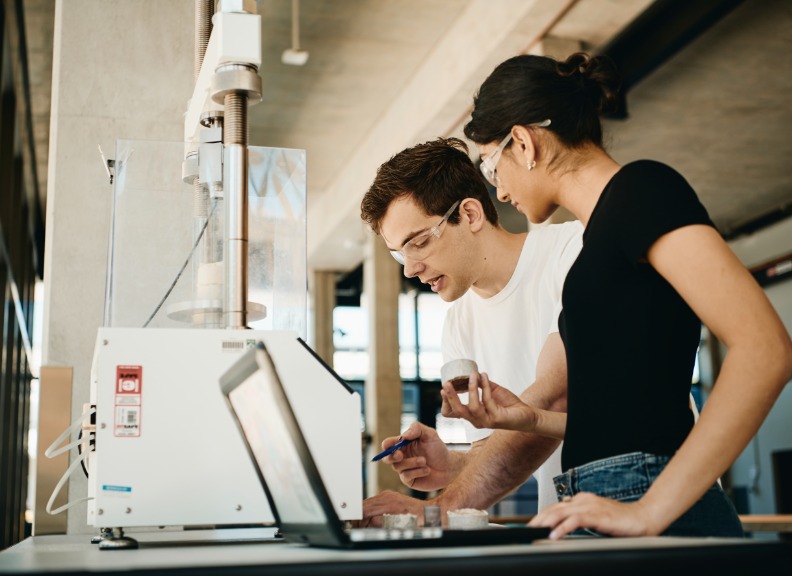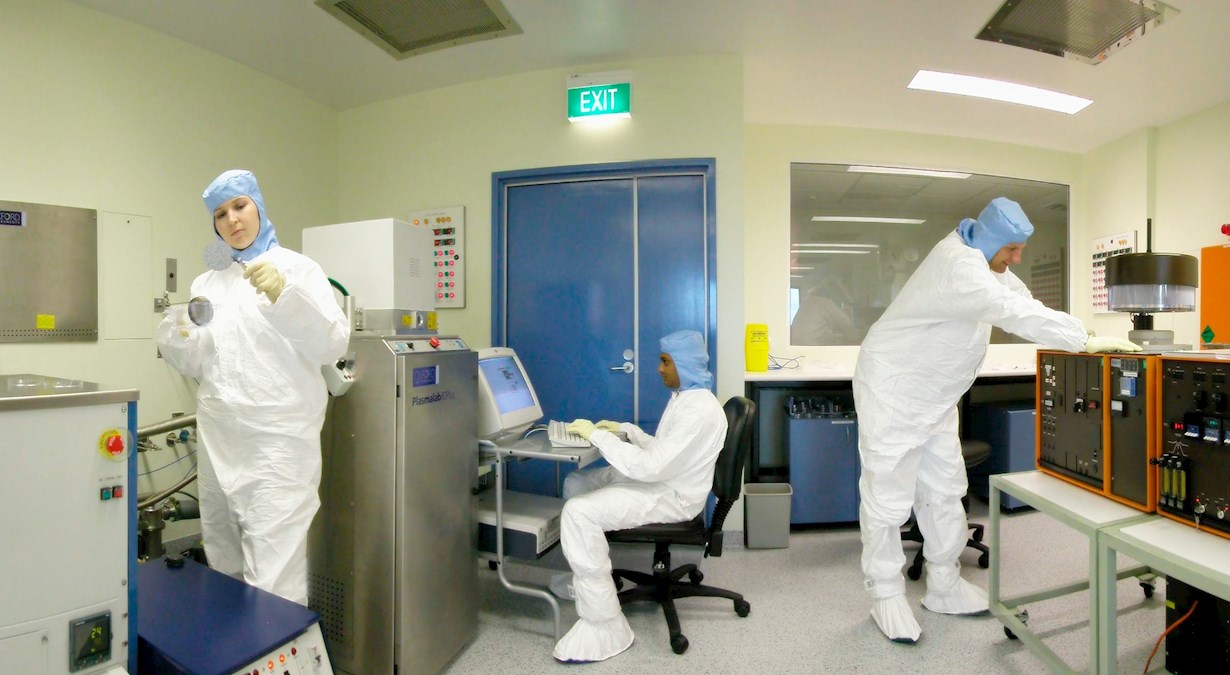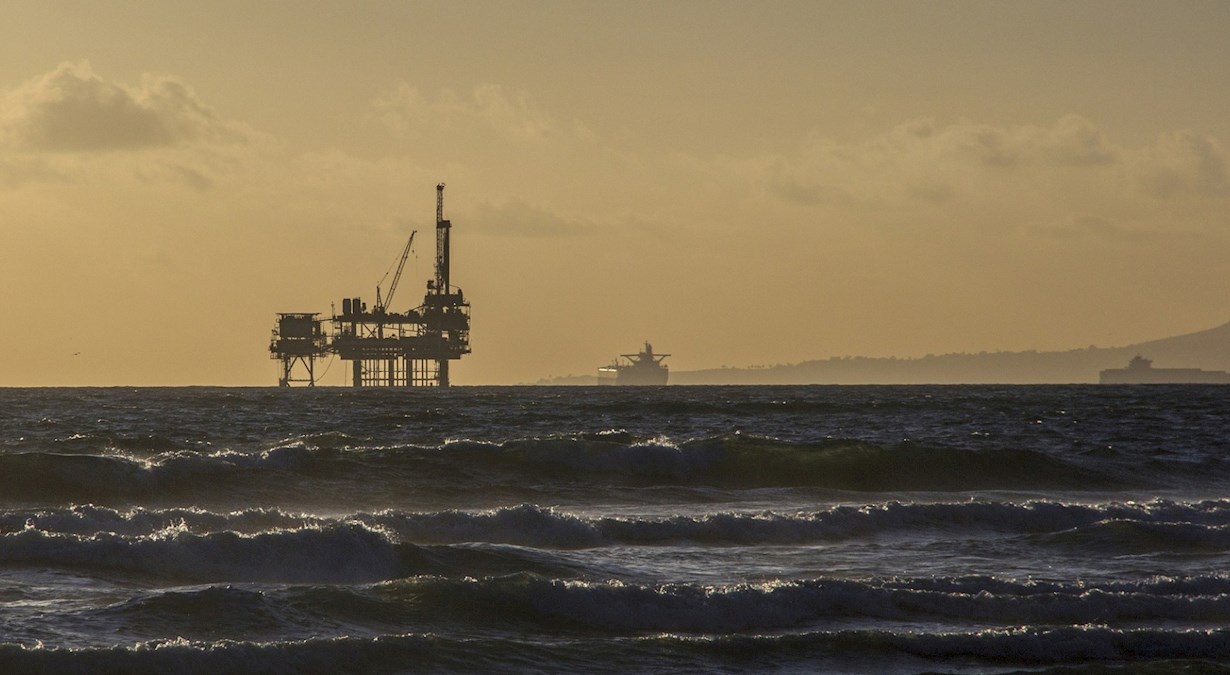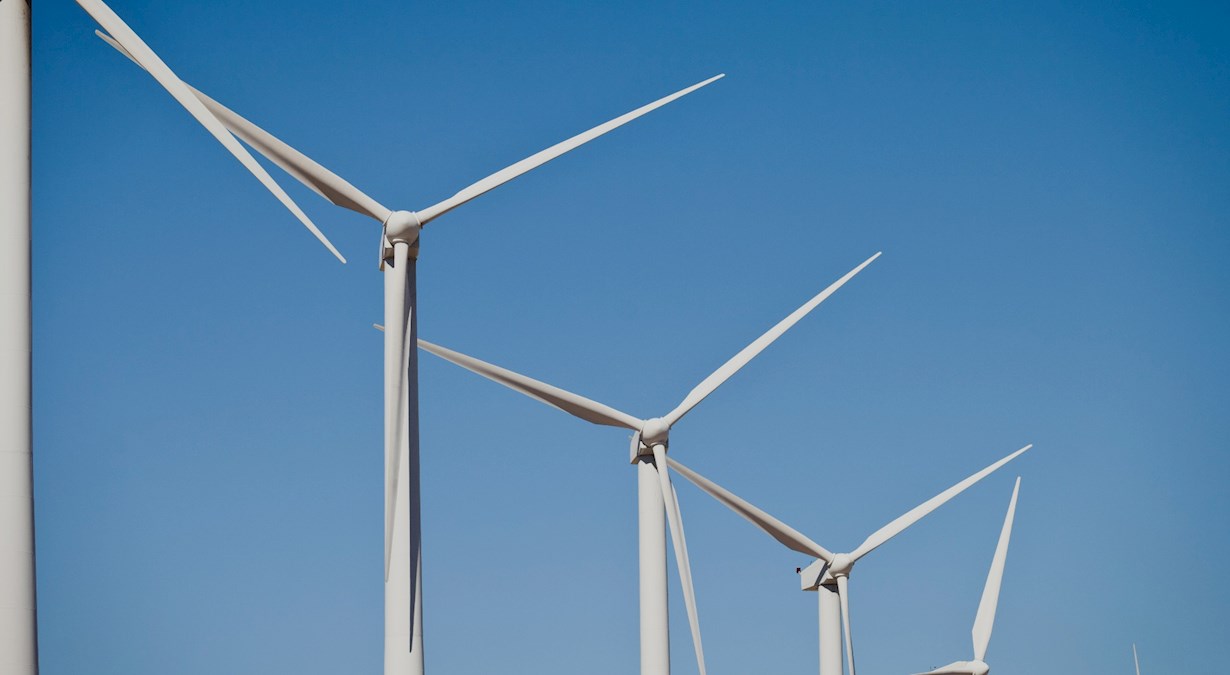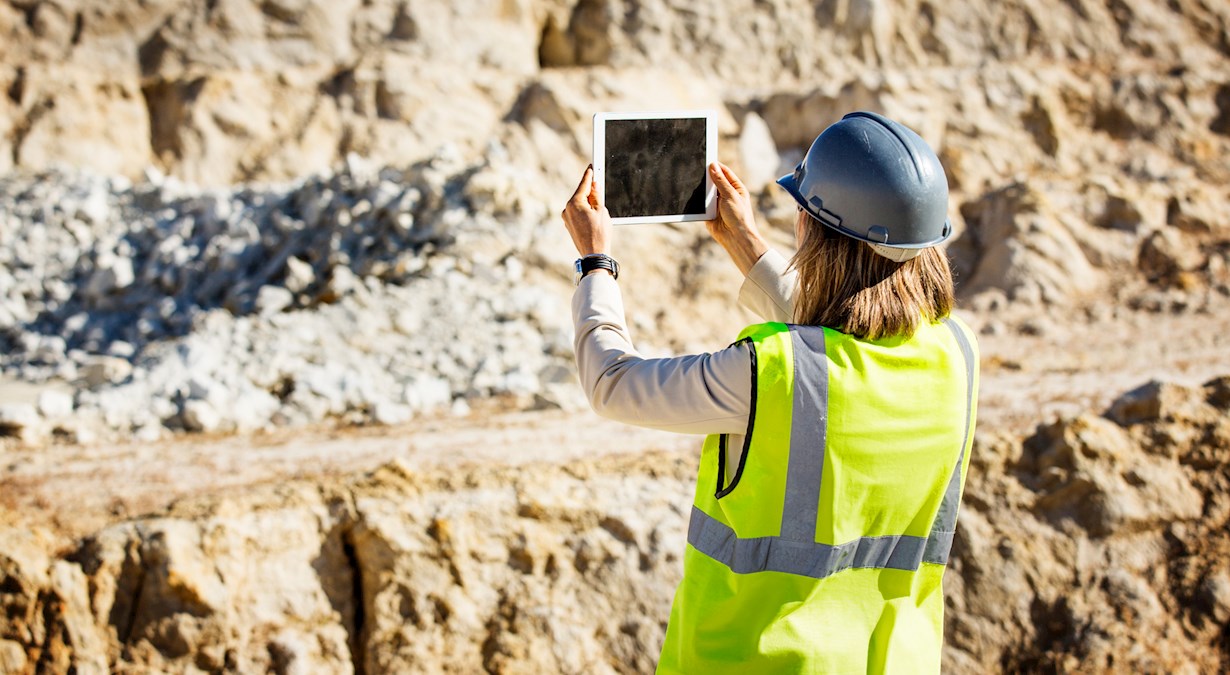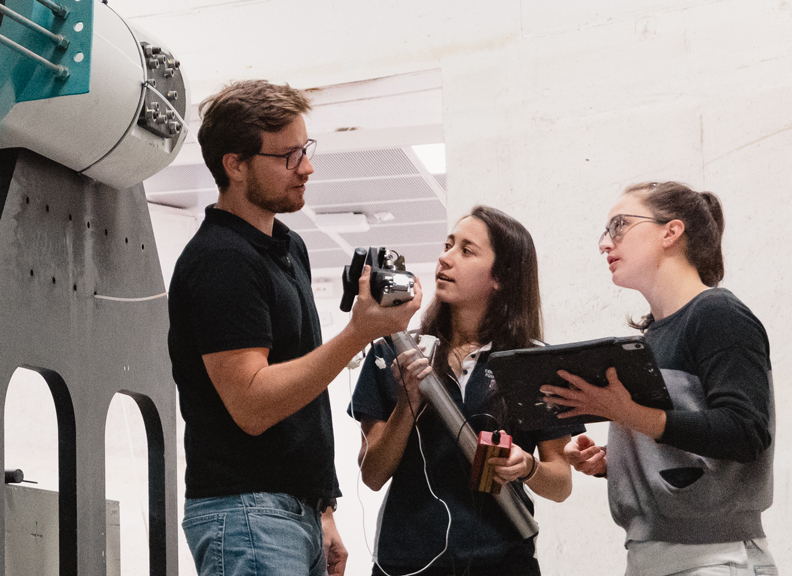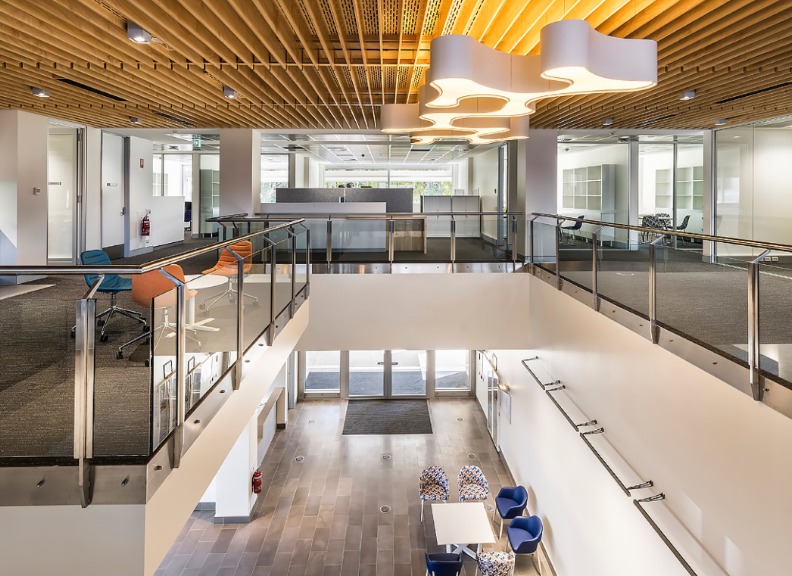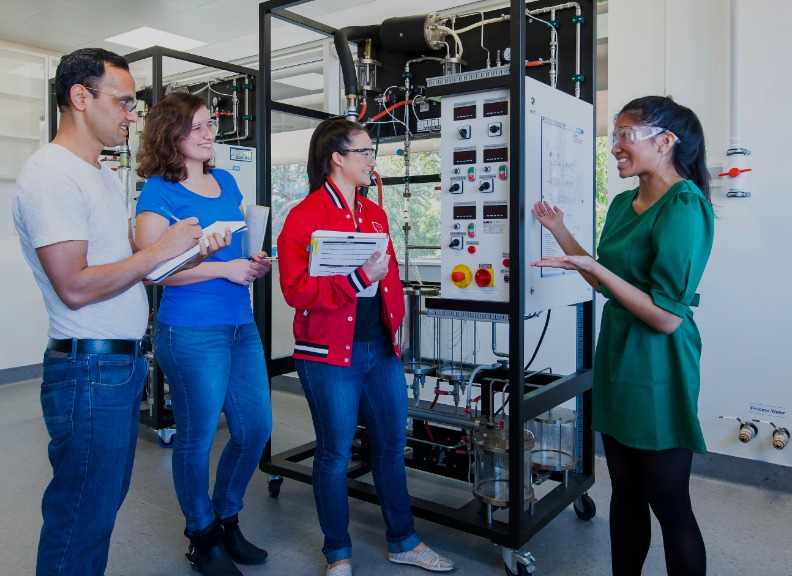Fluid Science and Resources
Understanding fluids to support complex resource recovery and minimise environmental impact
The Fluid Science and Resources research cluster in the School of Engineering has a strong track record of delivering innovative technologies that support the complex production challenges and environmental stewardship of the energy industry.
Global energy demands are projected to increase by 50 per cent in the next 15 years, requiring further exploration and production of hydrocarbons in hostile environments.
As conventional oil and gas resources provide the input to a wide variety of industries, understanding the character and behaviour of these hydrocarbon fluids - from extraction through refining - is critical to energy security.
The Fluid Science and Resources cluster combines world-class experimental facilities with comprehensive model development, to better interrogate, risk-profile and understand reservoir performance, sub-sea production and long tiebacks, flow assurance, platform operations and LNG productions.
The group draws expertise across magnetic resonance, oilfield and production chemistry, physical chemistry, thermodynamics, transport phenomena and fluid mechanics.
Research Areas
The cluster’s research focuses on the following four themes:
- Flow Assurance: gas hydrate prevention, management and remediation; wax precipitation; multi-phase flow; oil field emulsions and scale management.
- Fluid Properties: phase equilibria; reference-quality thermophysical measurements, including HPHT and cryogenic and property prediction tools.
- Gas Separation: advanced separation process development; materials development and process simulation.
- Magnetic Resonance: development of low-field NMR equipment and techniques to interrogate porous media and multi-phase systems including emulsions and hydrate dispersions.
Research opportunities are available for prospective students in this cluster. You can learn more by emailing the Pre-candidature team at the Graduate Research School.
Current Projects
- Hydrates and Flow Assurance
-
The global demand for energy is expected to increase 50% by 2030, requiring the production of remote oil and gas fields in deep water. To succeed in meeting this demand we must deepen our understanding of how high-value fluids travel under these extreme conditions. Flow assurance entails the management and avoidance, when possible, of solid particles or deposits in pipelines, which can result in environmental, operational, and safety hazards. Gas hydrate is a chief flow assurance concern, as this ice-like solid forms through the contact of natural gas and water at high pressure. Hydrate blockages represent a global obstacle to the successful production of deep-water assets.
- Advanced Thermodynamics for Gas Processing and LNG
-
A major ongoing effort of the Fluid Science and Resources Laboratory is measuring the thermodynamic properties of fluid mixtures at industrially relevant conditions, in particular those relevant to the liquefied natural gas (LNG) industry. Using a suite of precision measurement tools, we provide reference-quality data for vapour-liquid equilibria, solid-liquid equilibria, density, viscosity, thermal conductivity, heat capacity, surface tension, and dew point.
- Gas Separations and Adsorption
-
Gas is much “cleaner” than coal as the combustion of gas emits 47% less carbon dioxide for the equivalent energy output, and virtually no sulphur dioxide or mercury pollutants. Methane is the primary component of gas but it is also present with significant quantities of contaminants such as nitrogen, carbon dioxide and other minor impurities, depending on source of the natural gas, which may be conventional (such as associated gas or coal mine gas) or renewable (biogas and landfill gas).
- Oilfield Emulsions
-
Unwanted emulsions of (crude) oil and water are frequently encountered during oil production across the world including in Western Australia, which is now Australia’s main liquid fuel provider.
Such emulsions add significantly to operating (e.g. pumping) and capital (e.g. processing vessel size) costs, accentuate corrosion and generally adversely affect product quality. Essential to processes that break such emulsions (i.e. separate the water and oil phases) is real-time measurement of the emulsion droplet-size distribution. Using our unique Nuclear Magnetic Resonance (NMR) instrumentation for on-line emulsion droplet sizing, our aim is to develop cheap and robust methods including: oil-water gravity separation units with the inclusion of a water recycle for emulsion inversion (crude oil-in-water emulsions are much easier to break than water-in-crude oil emulsions); extraction of naturally occurring resins from crude oil that have been proven to significantly reduce emulsion strength; and use of carbon dioxide for emulsion droplet disruption and encouraged coalescence.
- Water Management
-
The Fluid Science and Resources Laboratory applies NMR techniques to the study of water management over a range of applied projects
- CO2 and Enhanced Recovery Research
-
Western Australia will soon be the world-leader in the geo-sequestration of carbon dioxide. Both the Gorgon project and the South West CCS Hub will store several million tonnes per annum of carbon dioxide in saline aquifers. Two of the most important but least understood mechanisms by which carbon dioxide remains trapped in these aquifers are known as residual trapping and solution trapping. Residual trapping relies on capillary forces to immobilize carbon dioxide “droplets” within the porous rock containing the aquifer.
PhD Opportunities
- Gas Hydrates and Flow Assurance for Long Subsea Tiebacks
-
Project description:
UWA has recently launched a long-term effort to support the development of long subsea tiebacks in the industry, with a goal of transiting hydrocarbon fluids through 100+ km subsea pipelines. Laboratory-based PhD placement opportunities are available, where a combination of micro- and meso-scopic apparatus will be used to interrogate phase transitions, reaction kinetics, and multiphase transport behaviour. Additional opportunities exist in simulation, where new methods are required to predict both phase stability and multiphase flow in complex systems.
Goals:
- Collect unique experimental data in the Long Subsea Tiebacks laboratory
- Develop or improve predictions of phase stability and transport phenomena
- Deliver updates to industry workshops, including the UWA Flow Assurance Workshop
- Publish experimental or simulation outcomes in leading academic journals
PhD Applicant Eligibility Criteria
B. Sc., M. Sc. or M. Eng. in Chemical Engineering, Mechanical Engineering, or Petroleum Engineering
Project Lead Contact details:
Acting Chevron Woodside Chair in Long Subsea Tiebacks, Associate Professor of Chemical Engineering, UWA
Email: [email protected]
Phone: +61 8 6488 3078
- Deep Ocean Thermodynamics and Climate Change
-
Project description:
The successful candidate will undertake research on the Australian Research Council funded Discovery Project ‘Deep Ocean Thermodynamics and Climate Change’. The project, which is in collaboration with researchers at the Swinburne University of Technology (SUT), will obtain new insights into the thermodynamic and transport properties of mixtures containing water, particularly at high pressures that impact directly on our understanding of climate change processes.
Currently, the behaviour of the thermodynamic and transport properties of the world’s oceans remains largely unknown. This project aims to increase our understanding of the role of carbon dioxide dissolution on properties such as the heat capacity of seawater at very high pressures, which could contribute significantly to the accuracy of climate modeling over long timescales.
Goals:
- Develop and improve predictions of properties in the deep ocean
- Interpret and analyse experimental data collected at UWA
- Publish outcomes in leading academic journals and present at international conferences
PhD Applicant Eligibility Criteria:
B. Sc. or M. Sc. in Physics, Mathematics, Chemistry or related discipline.
Interest in or willingness to learn computer programming is essential.
Scholarships:
High-quality applicants will be offered a full scholarship for work on this project.
Project Lead Contact details:
Postdoctoral Research Fellow
Email: [email protected]
Phone: +61 8 6488 8653
- Gas Hydrate Nucleation: Towards Risk-based Hydrate Management
-
Project description:
Gas hydrates are ice-like solids that can form within, and block, subsea gas pipelines. If a precise description of when and where hydrates are likely to form was available, a strategy of hydrate management could be viable (rather than the currently widely used strategy of avoidance). This project is focussed on the use of novel experimental apparatus at UWA for the measurement of gas hydrate formation probabilities with unparalleled fidelity. The resultant data can not only be used to understand the fundamentals of hydrate formation but will directly impact oil and gas operators by enabling a reduction of significant and costly hydrate-related overdesign margins currently placed on subsea infrastructure.
Goals:
- Use state-of-the-art equipment (high pressure acoustic levitator and automated lag time apparatus) to collect hydrate formation data under a range of system conditions
- Interpret collected experimental data using physical models (e.g. classical nucleation theory) and subsequently produce outcomes with relevance for both industry and academia (e.g. predictive models, tests of theoretical predictions, insight into hydrate formation and inhibition mechanisms)
- Present/publish results in academic journals, at scientific/engineering conferences and at industry workshops.
PhD Applicant Eligibility Criteria:
B. Sc., M. Sc. or M. Eng. in Chemical Engineering, Mechanical Engineering, or Petroleum Engineering. B. Sc. (Hons) in Physics or Chemistry.
Project Lead Contact details:
Chevron Chair in Gas Processing
Email: [email protected]
Phone: +61 8 6488 2954
- Experimental Analysis and Simulation of LNG Boil-off-Gas
-
Project description:
Natural Gas (NG) is transformed into Liquefied Natural Gas (LNG) to be transported in an economic way, during which Boil-Off gas (BOG) can occur. This an important phenomenon that affects the gas industry, specifically during the storage and transportation of LNG. Furthermore, it can lead into the formation of stratified layers where a sudden mixing of existing stratified layers within a liquid phase occurs (Rollover). Limited data is available in literature and models fail to accurately predict this incident. The development of reliable and detail measurements will provide significant benefits in both transportation and storage of this energy source.
This research mimicked the conditions of an LNG vessel by building and designing a laboratory BOG apparatus that will allow the study of the effect of heat flux, volume, Boil-Off gas rate and composition on the BOG. The apparatus is already built and installed where variety of LNG mixtures will be studied during transient and steady state conditions at a temperature of -162 °C and around 1 atm. These measurements will help to design an accurate model to predict this phenomenon and it will be compared to other models available in literature.
Goals:
This project focuses mainly on BOG studies. Major goals are:
- Conduct comprehensive data analysis: Data analysis is key factor in this research, implementing accurate methods of transmitting the information is a key goal of this experiment. At the moment programs developed in VBA and LabVIEW have been generated, but may require upgrading to improve data analysis.
- Conduct experimental studies: experimental studies examining the effect of variable parameters on the BOG rate will be required for different LNG mixtures. This will include possible rollover phenomena, studying the effect of different amount of heat ingress on BOG rate and pressure change during self-pressurization, understanding how the BOG rate changes with the width/extent of the stratified region, and correlate the BOG rate with the temperature profile of liquid and vapor phases.
- Modelling approaches: Ultimate goal is to use our experimental data to validate BOG models. Most likely, CFD analysis will be required to enable BOG prediction under various pressure and filling conditions. BOG rate depends on size and shape of storage tank and pressure. Currently only proprietary empirical models available: if pressure or tank details change, a new curve is used to estimate the expected BOG rate. Our data are helping develop fundamental models that more reliably allow calculation of BOG rate under various real world conditions.
PhD Applicant Eligibility Criteria:
The successful applicant should have B. SC (Hons) M.Sc. or M.Eng in Chemical engineering,Mechanical Engineering, Petroleum Engineering, Physics. Some knowledge of experimental and/or theoretical work is desirable. Distinction for a Master degree with significant research component are highly desirable.
Project Funding:
This project is established in collaboration with Samsung Heavy Industry (SHI)
Project Lead Contact details:
Dr Sarif Al Ghafri
Research Fellow
Email: [email protected]
Phone: +61 8 6488 2686
- Water Management in the Resources Industry
-
Project description:
Issues concerning access to clean water and discharge of sufficiently clean water are pervasive across the entire resources sector. Such issues are made much more acute when the required engineering is in remote locations, which are prevalent in Western Australia.
Within the Fluid Science and Resources research cluster we have PhD projects under this research umbrella which focus primarily on novel NMR technology for discharge water monitoring – with the ultimate goal being application on unmanned platforms/sites and eventually sub-sea.
We also focus on monitoring the performance of water purification membrane systems (e.g. desalination), particularly ‘smart methods’ for the early detection of fouling events in these opaque membrane modules such that appropriate remedial action can be automatically exercised.
A common goal across this project area is the need for remote, automated sensing.
We request applications from PhD students who want to engage in this exciting research area.
PhD Applicant Eligibility Criteria:
Applicants are required to meet the standard admissions requirements as determined by the Graduate Research School.
Project Lead Contact details:
Senior Lecturer
Email: [email protected]
Email: [email protected]
Relevant study areas
Key contacts and funding partners
This research area involves the following UWA staff members:
The Fluid Sciences and Resources discipline thanks our industry partners for their contribution to research.
- AusIndustry Innovation Connection
- Chevron Energy Technology
- Hyundai Heavy Industries
- KFUPM
- National Energy Resources Australia (NERA)
- Shell Development Australia
- Western Australian Energy Research Alliance (WAERA)
- Woodside Energy
The Australian Centre for LNG Futures provides transformational benefits to Australia through collaboration, technological innovation and investment in education with industry partnership.

